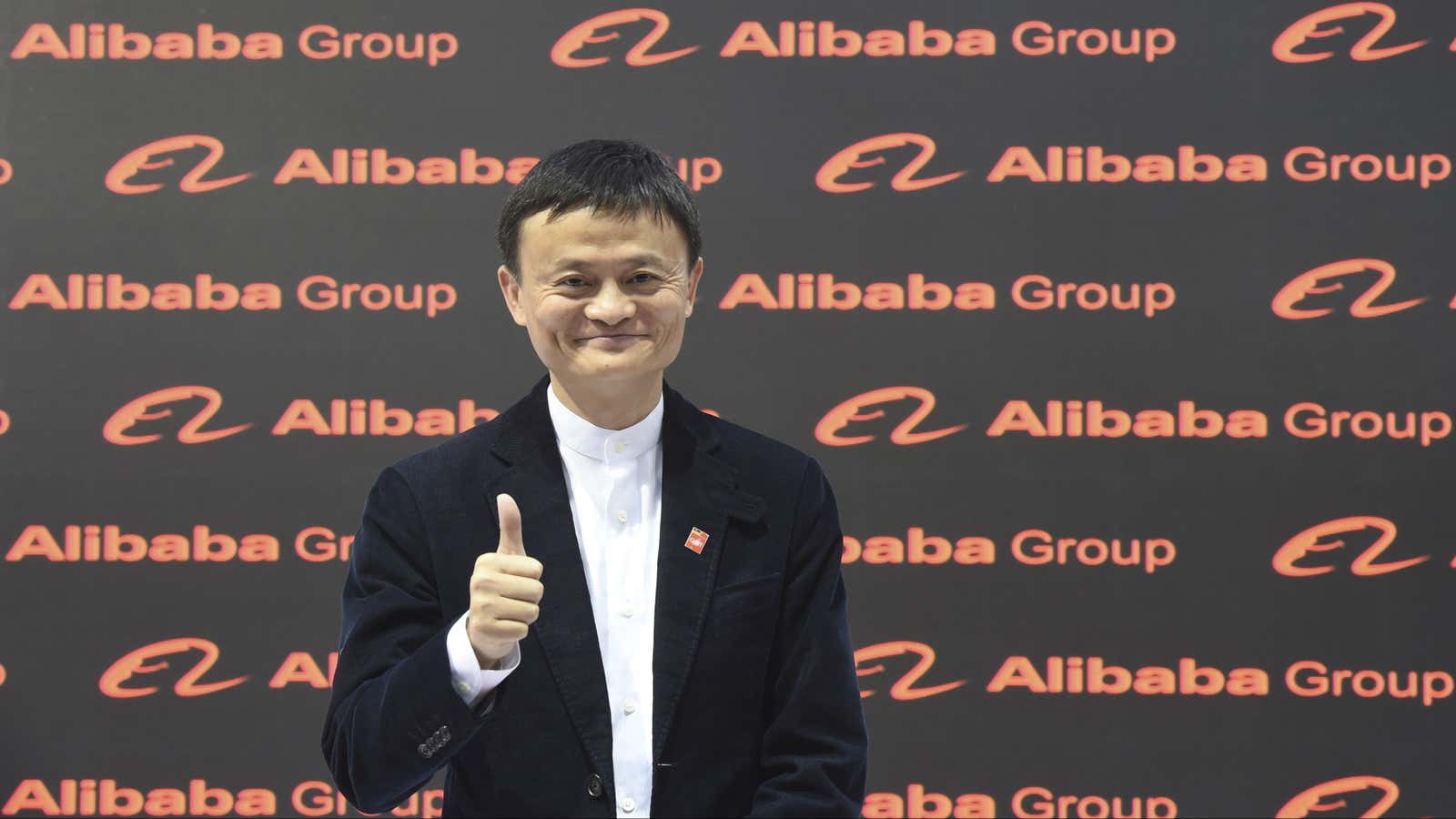Phase one of the Chinese e-commerce giant Alibaba was about getting Chinese people selling goods to one another. Phase two is about getting global brands to sell to the Chinese.
To that end, the company has appointed a new executive who will oversee its efforts to recruit more vendors from outside China onto its e-commerce stores. Starting today, Michael Evans, former vice chairman at Goldman Sachs, will join Alibaba as president of Alibaba Group, a new position.
Evans, who had served on Alibaba Group’s board (paywall) since the company’s initial public offering last September, will be based in the United States and responsible for building relationships with brands and vendors outside of China looking to do business there.
Courting international businesses onto Taobao and Tmall—Alibaba’s two largest e-commerce marketplaces—has been a cornerstone of the company’s strategy since its IPO. High-profile brands and vendors such as Costco, Unilever, Real Madrid, and others (links in Chinese) have all launched stores on Tmall in an effort to get dollars and attention from Chinese consumers.
China’s middle class is expected to grow healthily over the next decade. According to a report from McKinsey, private consumption among upper-middle-class households in China will increase 24% from 2012 to 2022.
Alibaba chairman Jack Ma told the Wall Street Journal last July that this segment marks a key demographic for his company’s growth. “Middle class Chinese consumers are eager to buy goods from abroad,” he wrote. “Cross-border purchases in China have grown tenfold since 2010, from less than $2 billion to more than $20 billion in 2014.”
An Alibaba spokesperson tells Quartz that the company has no short-term ambitions to open any new online marketplaces outside of China beyond AliExpress.com, which has grown popular in Russia and Latin America. The company launched its first US-facing consumer e-commerce site in 2014, but shuttered it just one year later.
Before turning its attention to foreign shoppers, Alibaba seems focused on squeezing every last penny from Chinese consumers.
